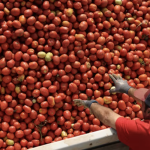CHB's Springhill Orchard innovates
We caught up with Ben James, Springhill Orchard business manager apples, for an update on progress. Although not yet at full production, the orchard is already exceeding its workforce predictions.
Added 3 years ago
By Brenda Newth
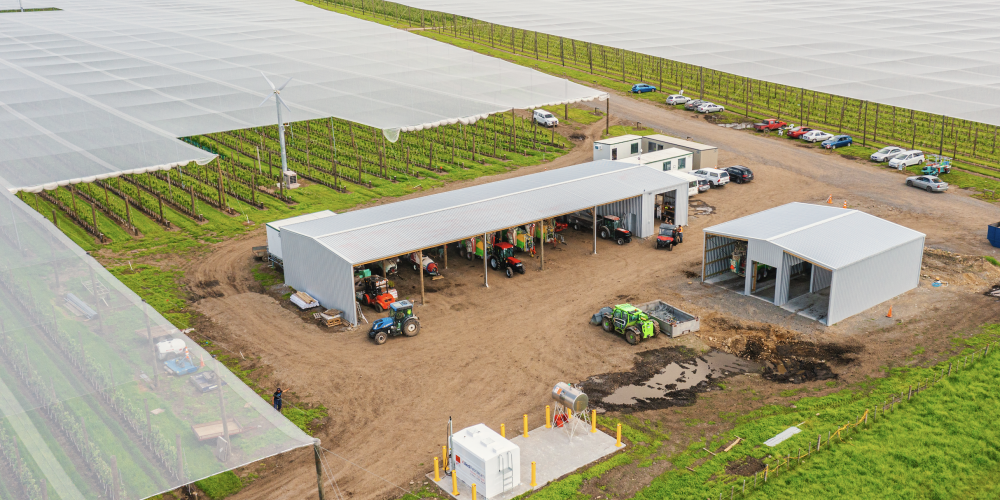
CHB’s Springhill Orchard grows apples, the economy, and people
In 2019, the Overseas Investment Office granted permission for Craigmore Sustainables to purchase a Central Hawkes Bay farm. The 130 ha development would convert pastoral farming and annual cropping land into an apple orchard, creating 73 full time jobs when fully operational.
Fast forward three years and Springhill Orchard is more than delivering on its promise. The Future Farming Trust caught up with Ben James, Springhill Orchard business manager apples, in mid July for an update on progress. The operation is growing not only apples, but contributing to the local community by supporting the development of local people.
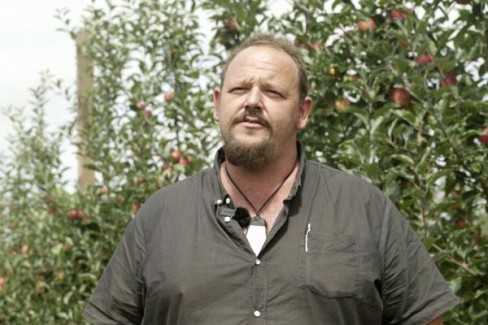
Ben James
Although not yet operating at full production, the orchard has already exceeded its workforce predictions. Ben James says that the operation is going from strength to strength.
“It’s a really unique environment. Not just from a climatical point of view, being in CHB and right under the western ranges, but also from a cultural and social point of view.”
The operation draws labour from as far south as Dannevirke and as far north as Napier, and that means that the workforce is really diverse, which adds to the culture.
James says the company has a supportive culture, and a really safe peer-to-peer learning environment.
“We have this mantra that failure is part of success. We acknowledge that we’re new to the scene and our core staff need some time and energy spent on them to get them where we need them to be as fruit growers.
“But that’s part of the journey and excitement of Springhill. We’re really proud and passionate about what we do to grow people. The diversity of our people, brings challenges, but brings far more good than the challenges ever pose.
“We see our diversity as a strength,” he says.
When Springhill rolls up its labour needs for the 2022 season, the operation will have 71 FTE. The site is only in its first year of apple production across 60% of the orchard. In full production, Springhill’s labour force will exceed original predictions.
On the weather front, James says that Springhill has a unique climate, due to its netting. “We had higher level of disease pressure through spring, coupled with unpredictable wind patterns through the orchard as turbulence rolled in from the netting.
“So we definitely have some areas where we need to focus in terms of what the netting brings to our operation. But overall, the climate in CHB is fantastic. Even though we’ve had a lot of rain, with just over 200ml on site earlier in the year in the rain event, but within 30 hours the orchard has drained. We have really good free draining soils; water is not an issue for Springhill.”
James says the property is amazing, and has some really good attributes, but the team is the icing on the cake. The people are what makes its amazing.
“It’s a great place to work, and that’s our goal. Treating people like they’re people and helping people have meaningful long term employment. It’s a change for rural areas like CHB, where you would have lots of seasonal placements and no permanency about work. It’s hard to get traction as family when that is your income base.
“We recognise that full time employment is extremely meaningful, and that’s what changes families. It’s a focus of ours. We operate more staff per hectare than a pip fruit operation on the Heretaunga Plains, and we smooth the work across the year, to allow us to retain more permanent Kiwis.”
Springhill has positions available, and no concerns about filling them. “The skill that we have injected and the people that we’ve been able to employ this year, in terms of bringing others into the business, we’ve got very experienced horticulturalists from all over Hawke’s Bay knocking on our door now. And we need those people to lead and teach and share their skillset with the rest of the staff
“We’re in a unique position, and don’t seem to be having the same (workforce) barriers in CHB as some of our counterparts on the plains are.”
James got into orcharding in his adult life, after a varied career including building and the military.
“Somebody believed in me, and put some time and energy into me and encouraged me to take on some challenges, including young grower competitions (which James won).
“Since that point in time, I’ve spent a lot of energy in my career creating opportunities for other people, believing in other people. Today’s youth, just need people to believe in them.”
Springhill is about graduate 11 rangatahi from Tu Te Wana – a Level 2 foundational employment programme covering Level 2 NCEA, and some Level 2 pip fruit qualifications and getting some work experience, among the Springhill workforce, and help them getting their driver’s licence.
“It’s really neat when we step out into the community to help our youth. We’re trying to entice people into horticulture, because it’s a great industry to be a part of.”
James says he is blessed to be part of a business that gives him that freedom, and encourages him to build and grow people.
“I feel I have the full force of the company behind me. My CEO has come and addressed the students, he walks through the orchard and knows people by name, and helps them to pick bags of fruit. We’re one big whānau, really.”
Craigmore Sustainables was started in 2008 by Canterbury businessmen and farmers, Forbes Elworthy and Mark Cox.
Production
Springhill Orchard - 130ha netted orchard
Hail netting reduces hail risk, reduces wind, reduces temperatures and bird damage
Runs drip irrigation, at night
Live moisture monitoring probes
Nine varieties grown: Breeze, Ren Sonja, Lady in Red, Dew Gala, Envy, Dazzle, Rockit, Cosmic Crisp plus a new unnamed variety. Early, medium, and late harvesting.
Harvest 2022 –
- A small area cropping
- Picked 1340 bins
- Cropped 13% of the property
- Quality exceed expectations for young trees
Predictions for 2023 –-
- 7000 bins
- Will crop 92% of the property
Join the conversation
Be the first to leave a comment.
Leave a comment
All comments are reviewed before they are published on the website. Your email address will not be published.
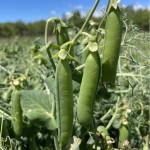
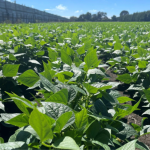

Community Engagement and Knowledge Sharing Strengthen the Carbon Positive Project
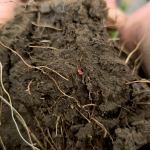
Are We Changing Soil Carbon Yet? Three Years In, the Jury’s Still Out
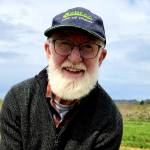
Farewell to Trustee Phil Schofield – A Foundational Leader of the HBFFCT
